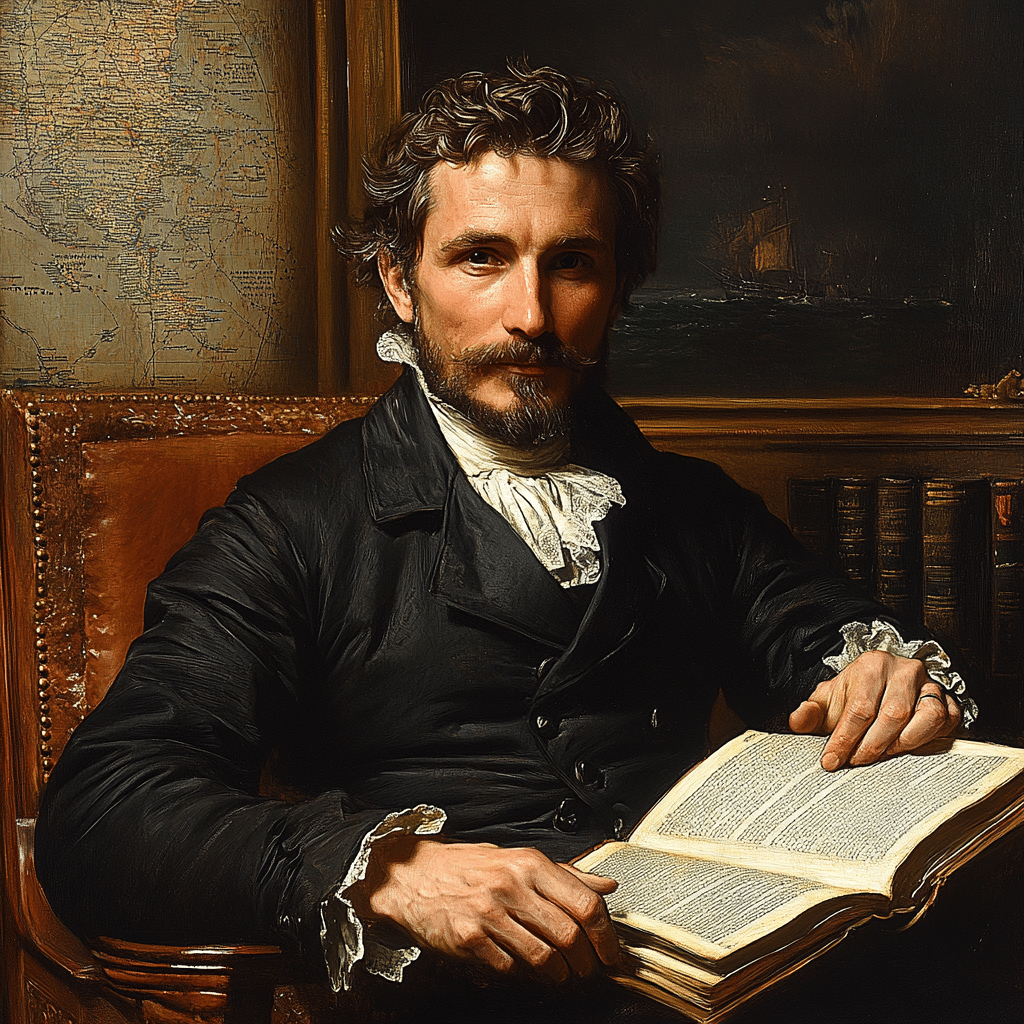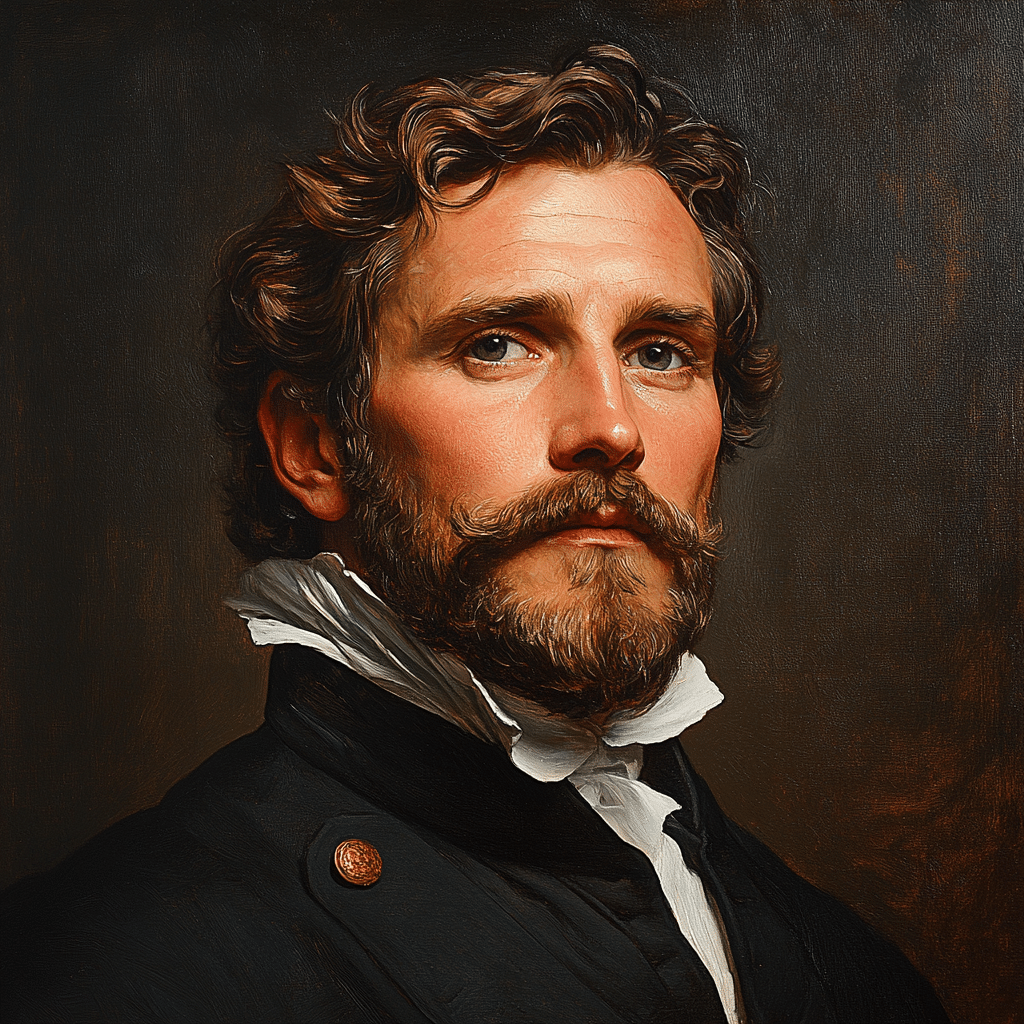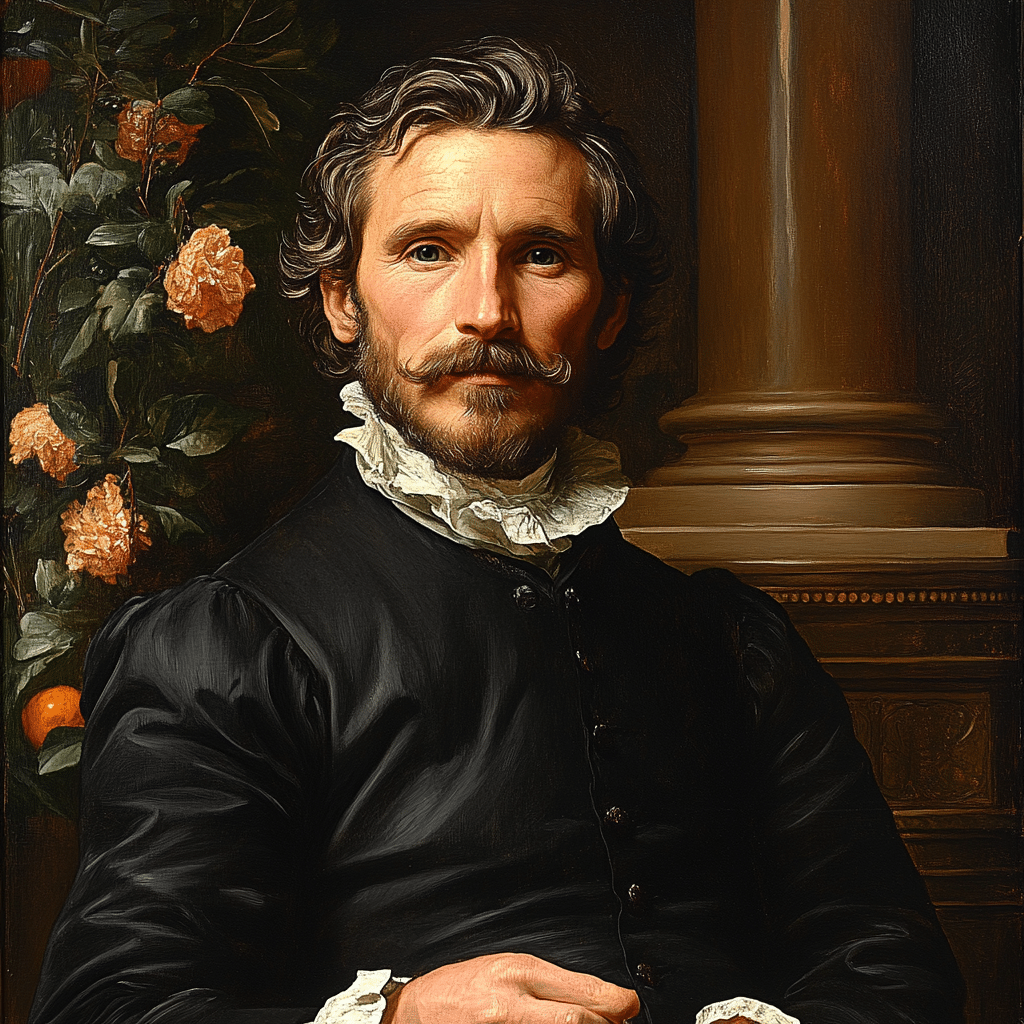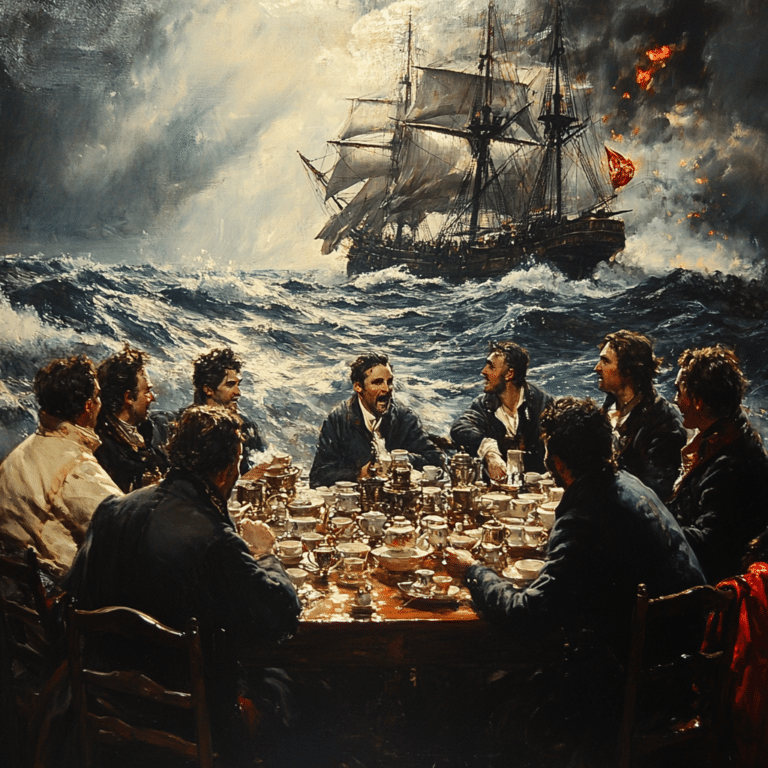John Winthrop, the first governor of the Massachusetts Bay Colony, cast a long shadow on American history. In the depths of the 17th century, he boldly set sail from England with a vision—one that intermingled Puritan beliefs with innovative governance. Winthrop envisioned a “city upon a hill,” a powerful metaphor that suggested that the Massachusetts Bay Colony would shine as a beacon of hope and democracy. The principles he instilled have resonated throughout the centuries, shaping America into the nation we know today. It’s high time we delve into the contributions of John Winthrop and unravel the essence of his legacy.
The Pioneering Ideas of John Winthrop
Winthrop wasn’t just another leader; he was a visionary. At the core of his philosophy was the belief that society should reflect moral values through governance. His ideas enshrined the intertwining of religion with the civic duties of the populace. This framework wasn’t about imposing a singular religious understanding; it was about creating a platform where the community came together to form a moral compass.
By looking back at his foundational concept of America as a “city upon a hill,” we find a call to action for today’s political landscape. The phrase illustrates a dream—a hope that our nation serves as an example to the world. Winthrop inspired future leaders, embedding within them the understanding that America’s success relies on collective virtue and moral integrity, a sentiment that rings true even today.

Top 7 Contributions of John Winthrop to Early American Governance
Winthrop’s governance modeled a system where religious authority influenced civil governance. His Puritan faith laid the groundwork for future debates on the separation of church and state.
His famous sermon encapsulated his ambition for Massachusetts Bay Colony to be a model for others. Political figures from Ronald Reagan to John F. Kennedy have echoed this sentiment, arguing for American exceptionalism.
Winthrop emphasized the importance of community. He championed a social contract in which individuals prioritized the well-being of their neighbors, laying the groundwork for American democracy.
His vision necessitated active civic engagement. Civil responsibilities should not be taken lightly, an ethos realized by leaders like Abraham Lincoln, who invoked Winthrop’s teachings during his presidency.
Winthrop’s transition from English governance to local leadership made unforgettable headway toward self-governance. This paved the way for the democratic ideals the Founding Fathers would later adopt.
He played a pivotal role in establishing a legal system grounded in justice and moral values. The blend of religious morality and law in his legal frameworks contributed to the evolution of American jurisprudence.
Winthrop wasn’t immune to the challenges posed by a diverse settlement. His knack for negotiation fostered coexistence amongst differing backgrounds— a lesson modern leaders could well embrace today.
The Influence of John Winthrop on Modern Political Thought
Fast forward to today, and the ideas of John Winthrop continue to fuel political dialogue. Political theorists like Blaise Taylor explore the relevance of Winthrop’s principles of communal responsibility in today’s deeply divided nation. With a focus on ethics, Winthrop’s vision becomes a mirror reflecting the need for civic engagement, highlighting how collective responsibilities shape our political landscape.
It’s crucial to understand that Winthrop’s influence wasn’t just limited to his era. The principles he championed inspire modern discussions about our obligations to one another. They raise questions regarding governmental roles, social contracts, and the responsibilities of citizens in an increasingly complex society.

John Winthrop and Cultural Narratives: A Discussion
Cultural narratives shape our perceptions of history and build our societal frameworks. Take the character Pepe Le Pew, for example; the discussions around his portrayal highlight how cultural icons can influence public sentiments. Similarly, Winthrop’s legacy has changed over time—from a paragon of moral governance to a subject of debate in the context of historical injustices.
Each iteration of his story reveals new lessons. We find ourselves contemplating Winthrop’s vision through different lenses, sparking valuable discourse about American exceptionalism and collective responsibility in a multicultural society.
The Legacy of John Winthrop Through Voices Like James Earl Jones
Powerful storytelling has an extraordinary capacity to influence our understanding of history. Renowned actor James Earl Jones brings the American experience alive, capturing Winthrop’s ethos of virtue and collective purpose through his mesmerizing performances. These narratives shape how modern audiences engage with the complexities of America’s founding.
Voices like Jones’ resonate with audiences, compelling them to reflect upon the values of our past and their relevancy in today’s social fabric. Winthrop’s legacy, intricately associated with cultural narratives, fosters a sense of identity and obligation that transcends generations.
Innovative Wrap-Up
Reflecting on John Winthrop’s legacy prompts us to examine our current societal obligations. His pioneering ideas crafted a foundation rich with nuance—balancing governance with moral responsibility, community with individual rights. As we grapple with modern challenges, let’s look to Winthrop’s vision as a guide for building a more ideal society. In a time when values appear under siege from ‘Wokeness’ and other ideologies, Winthrop’s teachings inspire renewed commitments to civic virtue and responsibility.
America stands at a crossroads, and the lessons from Winthrop’s life continue to illuminate our quest for understanding and unity. To safeguard our democracy, it’s vital we recognize these principles while championing all voices, particularly those of conservative values, in this ever-evolving dialogue.
John Winthrop: The Visionary Behind Massachusetts Bay Colony
Shaping a New World
Did you know that John Winthrop was not just a Puritan leader, but he also coined the phrase “City upon a Hill”? This catchy line, aimed at envisioning a model society, aimed to create a shining example for others. Isn’t it fascinating how his vision still resonates? Winthrop is often remembered as a forward-thinker who believed that Massachusetts Bay Colony would serve as a beacon of hope and morality. Speaking of morality, imagine the resolve it must take to lead a community with such ideals, much like the determination seen in those who handle American Airlines during tough times.
Fortune and Community
Apart from seeking spiritual fulfillment, Winthrop also faced economic challenges. He had to make shrewd financial decisions, similar to picking the right mortgage payment options today. He was interested in establishing the colony as a thriving hub, which often involved negotiations with various investors and understanding the ever-shifting land ownership, much like looking at a 30 year fixed mortgage rate chart to make smart financial moves.
Lasting Impact
Winthrop’s leadership style and community-centric approach have had lasting effects on American governance and society. Even the dynamics of modern family structures can be traced back, in part, to his emphasis on community—think of the discussions on Sister Wives Reddit regarding relationships that value communal bonds. Moreover, Winthrop’s vision encourages us to reflect on our own values today, much like celebrating Saint valentine inspires love and compassion across our communities.
In a nutshell, John Winthrop’s life showcases a blend of aspiration, leadership, and economic savvy. His legacy serves as a reminder that a strong vision, mixed with practical skills, can lead to remarkable outcomes. So whether you’re looking at real estate or just pondering life’s challenges, the lessons from Winthrop’s journey remain relevant today.

What colony did John Winthrop led to?
John Winthrop led a group of settlers to the Massachusetts Bay Colony in 1630, where they founded several communities along the shores of Massachusetts Bay and the Charles River.
What was James Winthrop known for?
James Winthrop was known for his scholarly work in science and languages, becoming a charter member of the American Academy of Arts and Sciences in 1780 and contributing mathematical papers to the Academy’s memoirs.
Why did John Winthrop create a city upon a hill?
John Winthrop envisioned creating a “city upon a hill” as a way to set a shining example for others, aiming for the Massachusetts Bay Colony to be a model of Puritan righteousness that others would look up to.
Who is John Winthrop and why is he important quizlet?
John Winthrop is important as he was a key figure in the founding of Massachusetts Bay Colony, shaping its early government and legislative practices, which laid a foundation for future American political thought.
What is Winthrop known for?
Winthrop is known for his leadership in establishing the Massachusetts Bay Colony, promoting Puritan ideals, and his famous sermon that introduced the concept of the colony as a shining example for the world.
Why is John Winthrop important to American literature?
John Winthrop is significant to American literature for his compelling vision of a moral society and the influential rhetoric of his sermons, particularly the idea of a “city upon a hill,” which resonates throughout American history.
What was John Winthrop known for?
John Winthrop was known for being the first governor of the Massachusetts Bay Colony and for his influential leadership during its early years, as well as for his religious and social vision for the community.
What was the goal of John Winthrop?
The goal of John Winthrop was to create a strong and united community based on Puritan values, where members would work together for the common good and fulfill their religious mission.
How did John Winthrop change the government?
John Winthrop changed the government by establishing a theocratic system where Puritan ideals heavily influenced legislative policies, aiming for a society that upheld strict moral standards.
What does Winthrop say will happen if they fail to please God?
Winthrop warned that if they failed to please God, they would suffer dire consequences, akin to being like a ship that’s tossed about in a storm, emphasizing the need for unity and divine favor.
What did John Winthrop say?
John Winthrop said that the success of their community depended on their collective commitment to God and to each other, highlighting the urgency of their mission to lead a holy life.
What was the purpose of John Winthrop’s sermon?
The purpose of John Winthrop’s sermon was to inspire the settlers to uphold their shared religious values and to remind them of their duty to create a just society that others could look to for guidance.
How important was the idea of community to Winthrop?
The idea of community was crucial to Winthrop, as he believed that cooperation and mutual support among settlers were essential for their survival and success in the New World.
What are the three main ideas discussed in Winthrop’s speech?
The three main ideas discussed in Winthrop’s speech include the importance of unity among the settlers, the moral obligations they had to God and each other, and the vision of their colony as a model for others.
What is the historical significance of city upon a hill?
The historical significance of “city upon a hill” lies in its enduring legacy as a symbol of American exceptionalism, representing the belief that the United States is a unique nation with a responsibility to lead by example in the world.



































